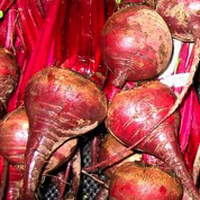Effect of beetroot (Beta vulgaris) extract on Black Angus burgers shelf life

Submitted: 15 April 2020
Accepted: 25 February 2021
Published: 25 March 2021
Accepted: 25 February 2021
Abstract Views: 841
PDF: 575
HTML: 13
HTML: 13
Publisher's note
All claims expressed in this article are solely those of the authors and do not necessarily represent those of their affiliated organizations, or those of the publisher, the editors and the reviewers. Any product that may be evaluated in this article or claim that may be made by its manufacturer is not guaranteed or endorsed by the publisher.
All claims expressed in this article are solely those of the authors and do not necessarily represent those of their affiliated organizations, or those of the publisher, the editors and the reviewers. Any product that may be evaluated in this article or claim that may be made by its manufacturer is not guaranteed or endorsed by the publisher.
Similar Articles
- Giuliana Siddi, Francesca Piras, Maria Pina Meloni, Daniele Casti, Carlo Spanu, Carlo Pala, Anna Maria Mocci, Carlo Piga, Riccardo Di Salvo, Enrico De Santis, Christian Scarano, Evaluation of vacuum packaging for extending the shelf life of Sardinian fermented sausage , Italian Journal of Food Safety: Vol. 12 No. 2 (2023)
- David Ranucci, Dino Miraglia, Massimo Trabalza-Marinucci, Gabriele Acuti, Michela Codini, Maria Rachele Ceccarini, Claudio Forte, Raffaella Branciari, Dietary effects of oregano (Origanum vulgaris L.) plant or sweet chestnut (Castanea sativa Mill.) wood extracts on microbiological, chemical-physical characteristics and lipid oxidation of cooked ham during storage , Italian Journal of Food Safety: Vol 4, No 4 (2015)
You may also start an advanced similarity search for this article.

 https://doi.org/10.4081/ijfs.2021.9031
https://doi.org/10.4081/ijfs.2021.9031



